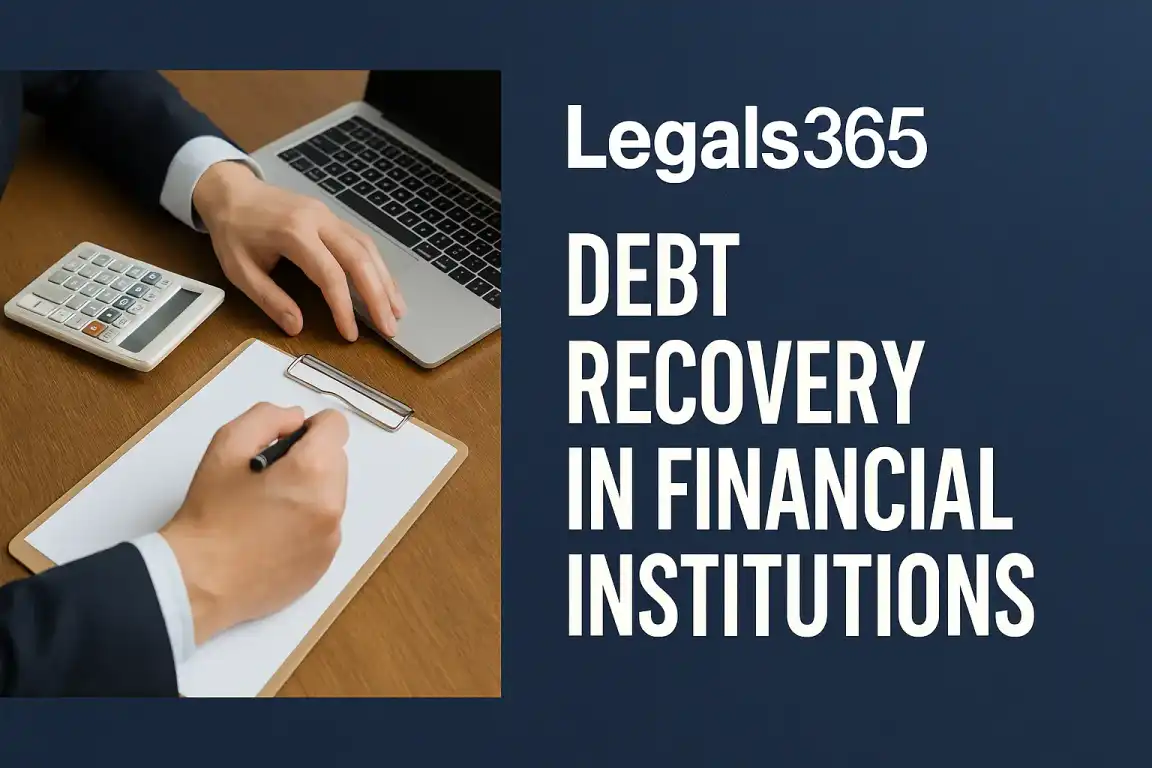
When You Can’t Pay the Loan: What Actually Happens
Let’s face it life doesn’t always go as planned. You take out a loan thinking you’ll repay it comfortably, and suddenly things change. Maybe your income drops. Maybe your business slows down. Maybe something unexpected comes along and knocks your finances off track.
Then one day, the calls start coming. The bank wants its money back. You panic.
But here’s the part most people don’t know: banks are bound by the law. They can’t just show up at your door and take your stuff. Loan recovery is a legal process, not a free-for-all.
Why Banks Recover Loans (And Why It Has Rules)
When people stop repaying loans, banks don’t just lose money—they lose the ability to lend to others. It affects how much they can give out, and it raises red flags with regulators like the RBI.
So yes, banks do have to recover dues. But they can’t just go rogue. Every recovery action has to follow proper procedure. That’s where laws like the SARFAESI Act and the DRT come in.
What Laws Control Loan Recovery?
Here’s a simplified look at what laws banks use to recover loans in India:
SARFAESI Act, 2002
This law lets banks take over and auction property used as loan collateral—but only after giving you a 60-day notice. They don’t need a court order, but they must follow the rules.
Debt Recovery Tribunal (DRT)
If the loan amount is over ₹20 lakh, banks can approach a DRT. It’s a special tribunal designed to fast-track recovery cases—no long waits like in regular civil court.
Insolvency and Bankruptcy Code (IBC)
If the borrower is a business or company, and things have completely tanked, banks may use the IBC route to recover whatever they can by winding up or restructuring the company.
What Actually Happens If You Miss EMIs?
You miss two or three EMIs. The bank doesn’t go to court immediately. Here’s what typically happens:
1. Reminder Calls & Emails
The bank tries to reach you, remind you, and sometimes even offers restructuring. This is your chance to talk and resolve things.
2. Account Becomes NPA
If nothing is paid for 90 days, your loan is officially tagged as a Non-Performing Asset. That’s when the recovery department gets involved.
3. Legal Notice
You’ll receive a written notice. This could be under SARFAESI or a legal demand notice. It gives you a final window to pay, settle, or respond.
4. Property Possession or DRT Filing
If your loan is secured with a property, the bank may move to take possession. If not, they might file a recovery case at the DRT.
5. Auction or Settlement
Often, borrowers are offered a One-Time Settlement (OTS). If talks fail, the asset may be auctioned off to recover the balance.
Recovery Agents Are Not Allowed to Harass You
Let’s clear this up—recovery agents are not the police. They don’t have the right to scream, threaten, or chase you down at work.
The Reserve Bank of India has very clear rules:
- No calls after 7 PM or before 8 AM
- No abuse or threats
- No showing up uninvited
- No calls to your relatives, boss, or neighbors
- Agents must carry ID and behave respectfully
If any of this is happening to you, you can complain—and you should. At Legals365, we’ve helped dozens of clients do exactly that.
A Real Case from Legals365’s Desk
A client came to us last year—an auto parts dealer from Faridabad. He’d taken a loan to stock inventory. But post-COVID, demand fell, and he missed five EMIs.
The recovery agent started calling him daily, even on weekends, and once showed up at his shop and shouted in front of customers.
He came to us, tired and embarrassed.
We stepped in right away—sent a legal notice to the bank, reported the agent’s behavior to the ombudsman, and started a structured settlement discussion. Within three weeks, the harassment stopped. Within two months, the loan was closed through a fair OTS.
How Legals365 Can Help—No Matter Which Side You’re On
We help borrowers who feel stuck. We also guide banks and NBFCs that want to recover dues the right way.
For Borrowers:
- Respond to recovery notices legally
- Prevent unlawful possession of property
- File complaints against abusive agents
- Negotiate OTS or EMI restructuring
- Represent you in DRT and other forums
For Lenders:
- Draft SARFAESI and DRT documentation
- File proper recovery cases
- Monitor compliance of recovery teams
- Help recover dues without violating borrower rights
- Structure clean, enforceable settlements
Led by Advocate B.K. Singh, our firm has resolved over 500 financial disputes across Delhi NCR and India—and every one was handled legally, ethically, and with full transparency.
Final Word: Don’t Wait Until Things Get Worse
If you’ve missed a few EMIs, don’t ignore notices. The earlier you respond, the better your chances of finding a middle ground.
And if you’re a lender, don’t risk your case by cutting corners or using untrained recovery agents. The law gives you tools—use them right.
At Legals365 and Online Noida, we work with real people in real situations and we never let the process become personal. It’s just law. And we make sure it’s followed.
#LoanDefaultIndia #RecoveryNoticeLaw #SARFAESIHelp #DRTCaseSupport #LegalProtectionBorrower #OTSSettlement #AdvocateBKSingh #Legals365Support #OnlineNoidaLawyer #LoanRecoveryRights
